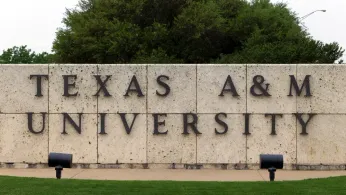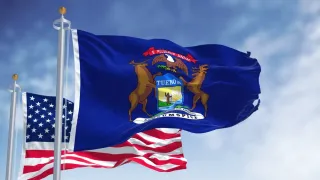
3 hours ago
Texas A&M University System Implements Policy Restricting Courses on Gender and Race Ideologies
READ TIME: 3 MIN.
On November 13, 2025, the Texas A&M University System Board of Regents voted unanimously to implement a policy restricting academic instruction related to "race or gender ideology" and topics concerning sexual orientation and gender identity. Under the new guidelines, any course that covers these subjects must receive prior approval from the university’s president or a designated administrator before being offered to students. The policy is set to take effect in the spring semester of 2026, though it is officially in force as of the board’s vote .
The revised Civil Rights Protections and Compliance policy now states, “No system academic course will advocate race or gender ideology, or topics related to sexual orientation or gender identity, unless the course and the relevant course materials are approved in advance by the member CEO or designee.” The board also updated the system’s Academic Freedom, Responsibility, and Tenure policy, clarifying that faculty must adhere strictly to approved syllabi and cannot teach material outside those boundaries without prior authorization .
This move follows several high-profile incidents at Texas A&M. In particular, the recent firing of Professor Melissa McCoul, who was dismissed after discussing gender identity in a children’s literature course, heightened scrutiny and political pressure on the university. The incident, which involved a secret student recording that was circulated to lawmakers, led to the resignation of then-president Mark Welsh, who reportedly received a $3.5 million payout. The controversy intensified legislative and public attention on how gender and race are addressed within the university system .
The policy has been met with significant opposition from faculty, academic freedom advocates, and LGBTQ+ organizations. Critics argue that the restrictions represent a form of censorship and may violate constitutional protections for academic freedom. The Foundation for Individual Rights and Expression sent a letter to the regents prior to the vote, warning that the changes “invite — indeed, practically guarantee — unconstitutional political interference with faculty teaching and academic freedom.” FIRE asserts that faculty, not administrators or politicians, should determine course content relevant to their academic disciplines .
Faculty members from various departments have spoken out against the policy, with many expressing concern that it could limit critical discussions about history, identity, and social justice. Some have warned that the policy could affect courses ranging from civil rights history to gender and sexuality studies, and potentially lead to self-censorship among educators .
On the other hand, supporters of the policy, including some board members, argue that it is designed to ensure “education, not advocacy,” maintaining that academic instruction should align with approved curricula and avoid “promoting activism” on issues related to race or gender .
LGBTQ+ rights groups and allies have voiced alarm about the chilling effect the policy may have on campus inclusivity and support for transgender people and other marginalized communities. Advocates highlight that courses addressing gender diversity, sexual orientation, and intersectional identities are crucial for fostering understanding and combating discrimination. There is concern that the policy could make it more difficult for transgender and nonbinary students to see their experiences reflected in course content, and for LGBTQ+ faculty to engage in open, evidence-based scholarship .
Legal experts anticipate potential challenges to the policy, citing precedents that protect academic freedom from political interference. Some speculate that the new restrictions could be tested in court, especially if they are found to infringe upon faculty rights or limit students’ access to comprehensive education on issues of gender and race .
As the Texas A&M System moves forward with implementation, the university community and its supporters nationwide are watching closely, anticipating the broader impacts on academic inquiry, campus climate, and the lived experiences of LGBTQ+ students and faculty.






